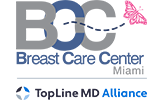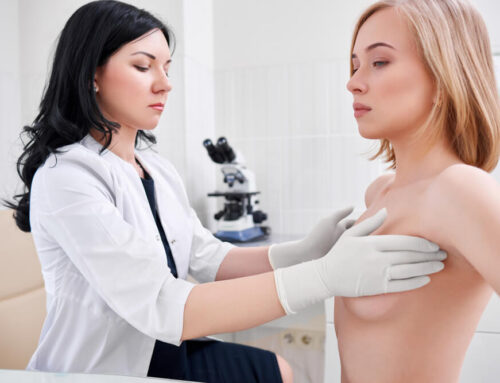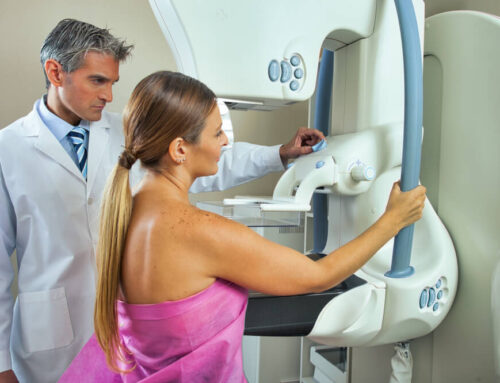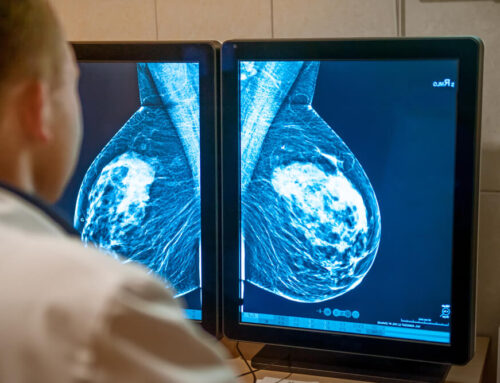If you have breast cancer or you’ve completed your treatment, following a healthy diet can help regain your energy, rebuild your strength, and support your immune system.
You can get the nutrients from fruits, vegetables, and whole grains, among others.
This article explores some breast cancer diet recommendations and other strategies you can apply to your routine to stay healthy while receiving breast cancer treatment. We’ll also go through some diet tips for cancer survivors.
Breast Cancer and Nutrition
Although doctors recommend that everyone follows a healthy diet, people with breast cancer or those who have completed their treatment have to be more aware of what they eat and drink.
A healthy breast cancer diet can provide the following benefits:
- It helps you maintain a healthy weight.
- It reduces your cancer symptoms and treatment side effects.
- It strengthens your immune system.
- Reduces fatigue
Breast Cancer Diet Recommendations 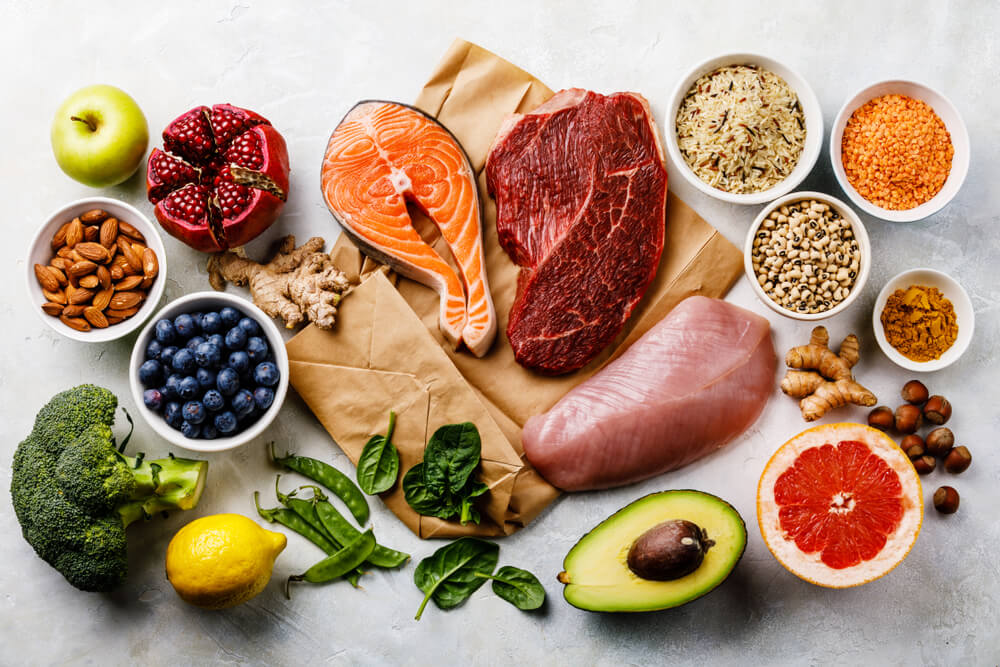
There are a lot of foods that you can eat to ensure that you get the right vitamins and nutrients to help your body fight cancer.
Let’s go through some of them:
Proteins
Cancer patients need more proteins than those who don’t have cancer, as their body needs help to heal tissues and fight the infection.
If you don’t consume enough proteins, your body starts breaking down muscle to get the fuel that it might need.
When this happens, it may take longer for your body to heal from illnesses, and you’ll be more at risk of developing infections.
The below are some foods that doctors may recommend for those following a breast cancer diet:
- Fish.
- Poultry.
- Eggs.
- Nuts.
- Soy foods.
Fats
When you eat fats, the body breaks them down to store energy and allows vitamins to travel through the bloodstream.
There are the fats that cancer care teams and dieticians recommend adding to a breast cancer diet:
- Monounsaturated fats: These include olive, canola, and peanut oils.
- Polyunsaturated fats: These are primarily present in safflower, sunflower, corn, flaxseed oils, and seafood.
There are also other fats, such as:
- Saturated fats: You shouldn’t consume a lot of these fats, as they can increase your cholesterol levels and heart disease risk. You can find them in meat, poultry, butter, and cheese, among others.
- Trans fats: Avoid these at all costs. – They come from snack foods and baked goods, and they can increase your bad cholesterol levels and lower your good cholesterol.
Carbohydrates
Carbohydrates are other sources that should be part of nutrition for breast cancer patients.
They act as the body’s fuel that we need for exercising and organ function.
You can find various foods containing carbohydrates, including:
- Whole grains.
- Fruits.
- Vegetables.
- Pasta.
- Potatoes.
Antioxidants
Antioxidants include vitamins A, C, and E, and you can find them in many fruits and vegetables.
However, it is best to consult with a doctor while receiving cancer treatment as they can suggest when it’s best to take antioxidant supplements.
Herbs
Herbs can treat health diseases, and you can find them in various products, such as creams, ointments, teas, and liquid extracts.
Most of them are safe to use but can cause harmful effects, as they can interact with the medications that you’re taking.
Your doctor can provide more advice on your breast cancer and nutrition diet to determine whether you can take products containing herbs.
Diet Tips for Cancer Patients
Cancer can cause fatigue, and many patients don’t have the energy to cook or plan their meals. At Breast Care Center Miami, we offer these tips that you can implement into your routine:
- Prepare small portions: You’re more likely to have nausea, bloating, and constipation if you have cancer, which can make it hard to eat three times per day. What you can do is prepare more meals during the day but reduce the size of your portions. You can also add boiled eggs, peanut butter, and apples.
- Consult a dietitian: It is best to meet with a registered dietitian specializing in helping people who need breast cancer and nutrition advice. They can create breast cancer diet recommendations based on your food preferences and provide you with tips on managing your side effects.
- Use different utensils: If you’re undergoing chemotherapy, you may have a bad taste in your mouth, and some foods, such as meat, can also leave a metallic taste. As a result, we recommend replacing metal utensils with plastic ones instead, to improve the taste of your food.
- Drink more water: Dehydration is common in cancer patients, as treatment can cause vomiting and diarrhea. It is best to limit your caffeine intake and drink between eight to twelve glasses of water every day, and you can also add fruit juice, milk, and low-sodium broth to your diet.
Furthermore, our team also recommends doing the following to increase your calorie and protein intake while receiving treatment:
- Eating every few hours.
- Engaging in light exercises before having meals can increase your appetite.
- Drinking between meals, as doing so with meals can make you feel full.
- Eat high-protein foods, such as Greek yogurt, eggs, and meat.
We’ll talk about food safety that revolves around nutrition for breast cancer patients in the coming section.
Food Safety and Cancer Treatment
People who have cancer or are receiving treatment have a weak immune system, as their body doesn’t have enough white blood cells to protect against infections.
Healthy food won’t increase your white blood cell counts. However, you can implement these food handling tips that you can use for planning and preparing food when you’re undergoing treatment:
- Wash your hands with soap and water before and after preparing food.
- Avoid refreezing defrosted foods.
- Washing fruits and vegetables before eating them.
- Avoid eating raw vegetable sprouts.
- Throwing away moldy fruits and vegetables.
- Storing raw meat in a sealed container.
- Using different utensils for raw meat.
Now that we’ve discussed nutrition for breast cancer patients let’s go through the tips we recommend for a cancer survivor’s diet.
Diet Tips For Cancer Survivors
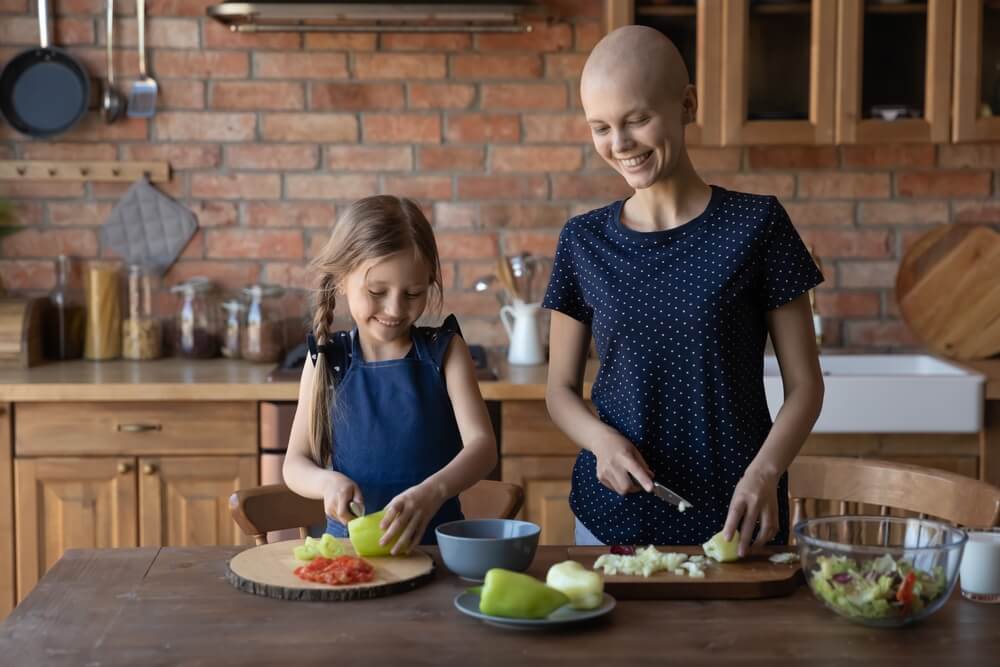
Doctors, nurses, or dietitians can help create a diet plan for cancer survivors, as they will need to regain their strength and energy and rebuild tissue.
These are our diet tips for cancer survivors:
- Eat fruits and vegetables every day, such as citrus fruits, dark-green and deep-yellow vegetables.
- Eat foods rich in fiber- these include whole-grain bread and cereals.
- Limit red meat intake (beef, pork, or lamb) and processed meats (bacon and sausage).
- Avoid alcohol, as it can increase the risk of cancers.
A survivor’s diet should also include physical exercise.
According to the American Cancer Society, you should also do at least 150 to 300 minutes of moderate activity, such as walking every week. Exercising comes with several benefits, as it can reduce the risk of health conditions, including:
- Depression.
- Stress.
- Fatigue.
- Nausea.
- Constipation.
Book Your Appointment Today
Breast cancer and its treatment can make you feel tired, without energy and reduce the body’s ability to fight infection.
A healthy diet can help increase your vitamin and nutrient intake, and physical exercise is also known to reduce the symptoms of some health conditions.
If you are concerned about your breast cancer treatment side effects and want us to help you create a diet plan, call our office at (305) 271-3300 to book your appointment.


